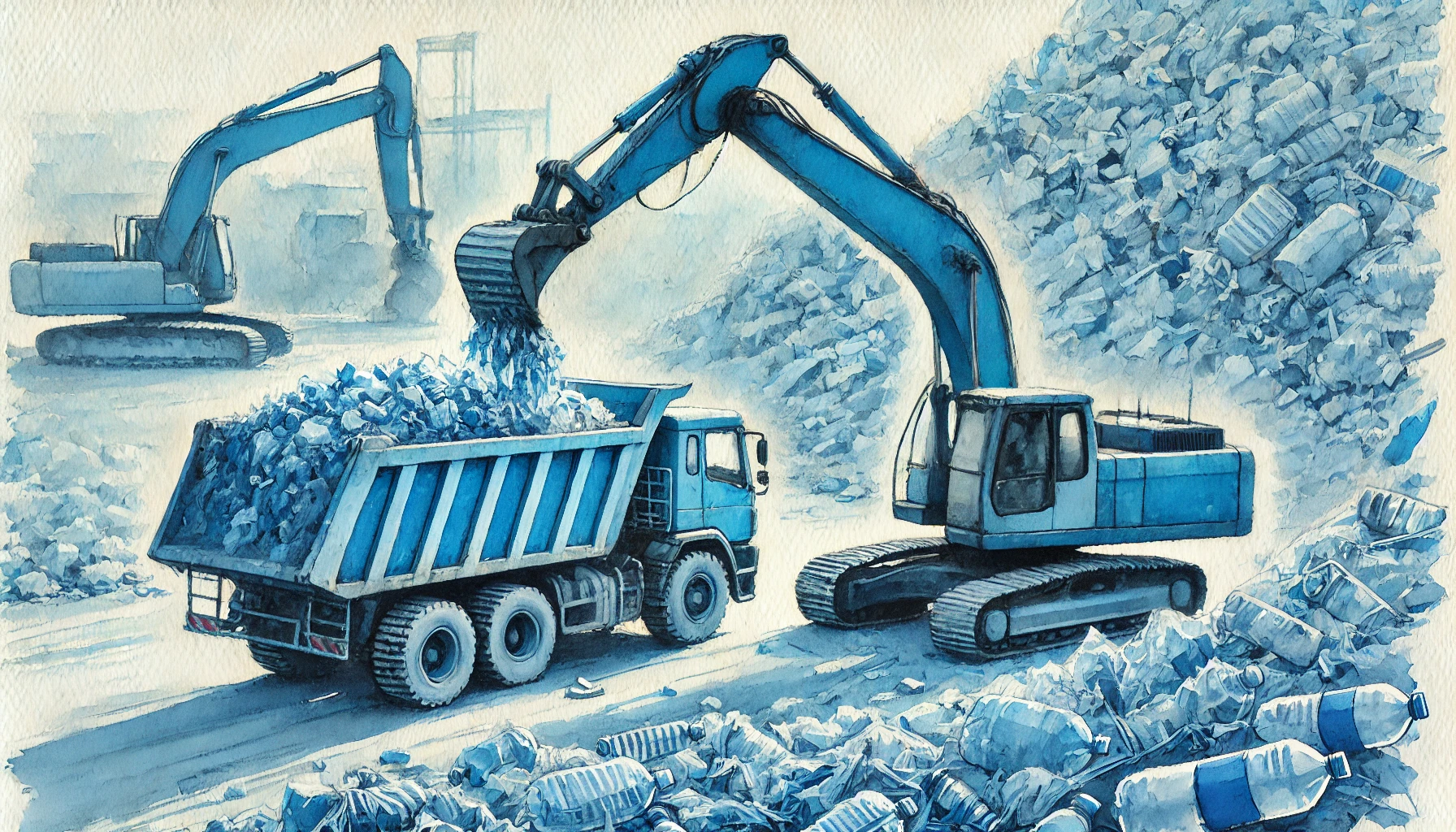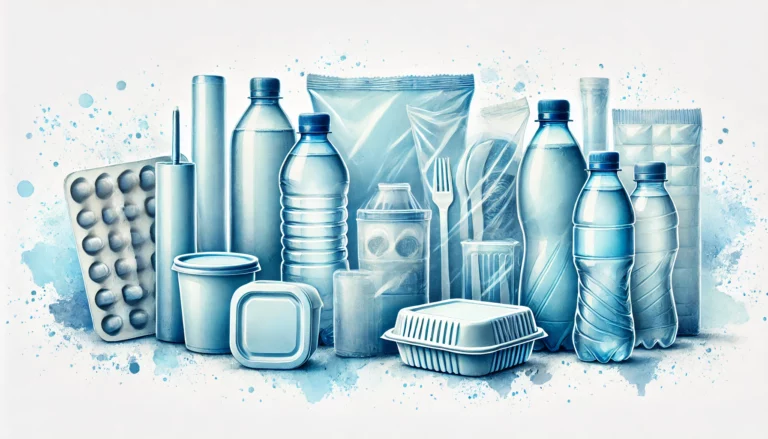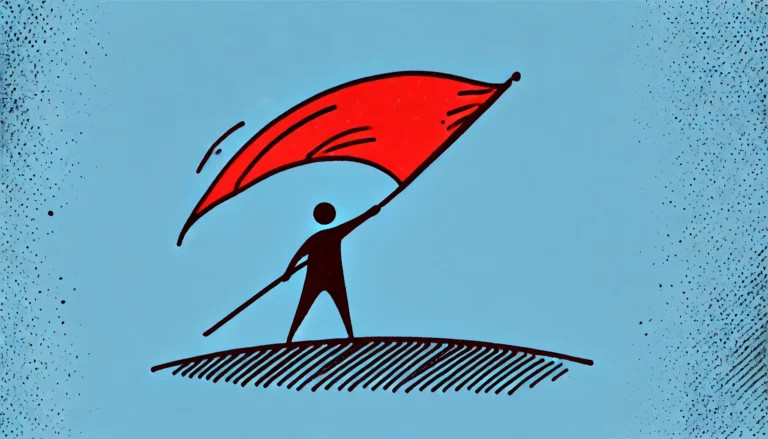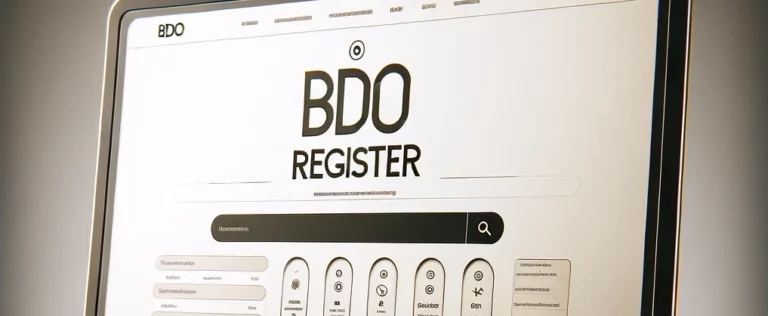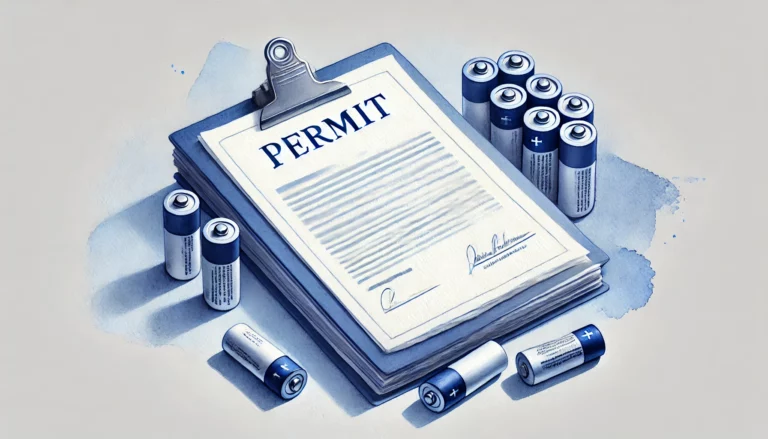Plastic waste recycling – do it right
Europe generates vast volumes of plastic waste. In 2022 alone, EU countries produced 16.16 million tonnes of plastic packaging waste, recycling just 40.7%. Germany leads both in production and exports: in late 2024, it dispatched roughly 15.4 million kg/month of plastic waste abroad. Meanwhile, non-OECD destinations—especially Türkiye—now absorb 44 million kg/month, underlining capacity constraints and cost pressures in Europe.
Do you need help with waste management? Contact us:
Consequently, exporting waste has become a common but complex solution. In response, companies exporting waste plastics—from Poland or across Europe—need a clear roadmap. This guide explains plastic types, why recycling costs are high, the roles and pitfalls for stakeholders, and how to minimize risk. Finally, we highlight why choosing a trusted partner like Waste Transport Solutions ensures compliance, transparency, and peace of mind.
Plastic type hierarchy by recycling ease
Plastic recycling varies widely depending on polymer type:
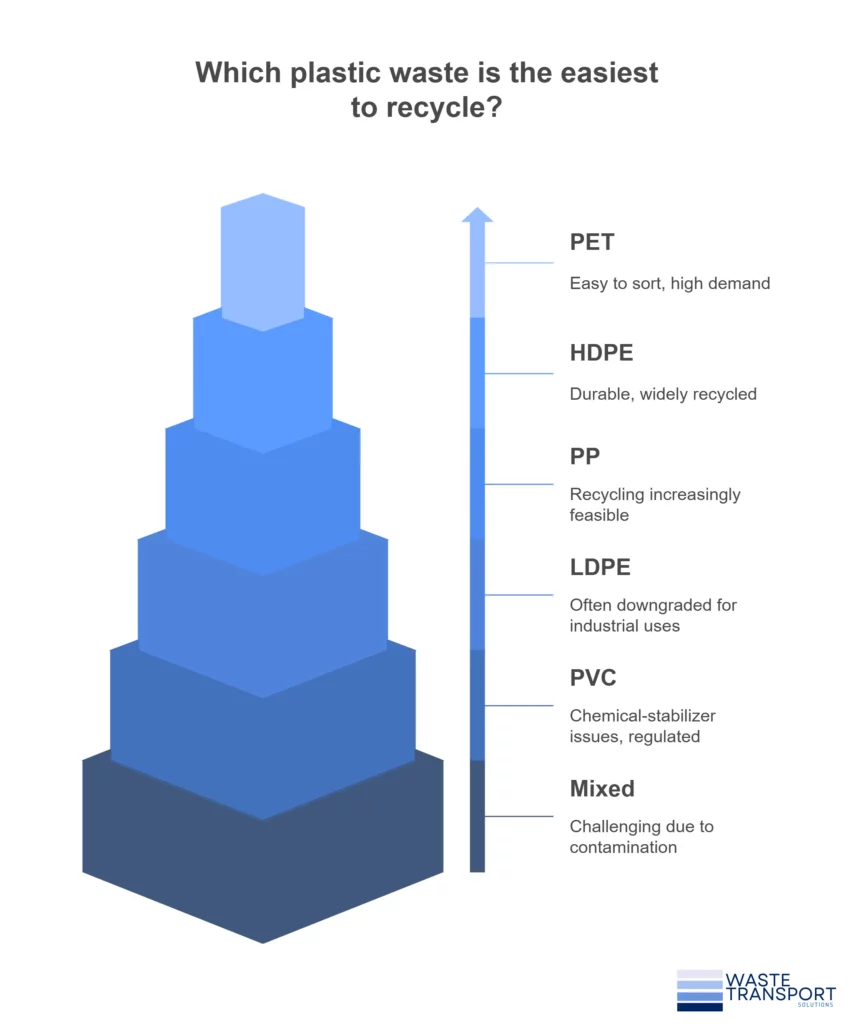
This ranking reflects both market demand and technical recycling feasibility. While PET and HDPE are cost-effective and widely recycled, mixed plastics often end up incinerated or landfilled—despite circular economy goals.
Why plastic waste recycling is so costly?
1. Sorting and contamination
Recyclers spend heavily on sorting equipment. Even small contamination reduces melt quality and value.
Tip for waste generators: Pre-sort and clean plastics to reduce contamination and lower fees.
2. Low virgin resin prices
Virgin plastics are still cheap—9.5% of EU production included recycled material in 2022.
Tip: Negotiate contracts that reflect quality and recyclability, not just weight.
3. Limited domestic capacity
Europe lacks enough recyclers, especially for harder-to-recover plastics, meaning exports or disposal are necessary .
Tip: Partner with recycling companies that operate across borders and comply with EU laws.
4. Regulatory overhead
Exporting plastic waste requires careful documentation and compliance with the Basel Convention.
Tip: Keep track of all permits, and rely on professional support to avoid legal penalties.
Responsibilities & common errors
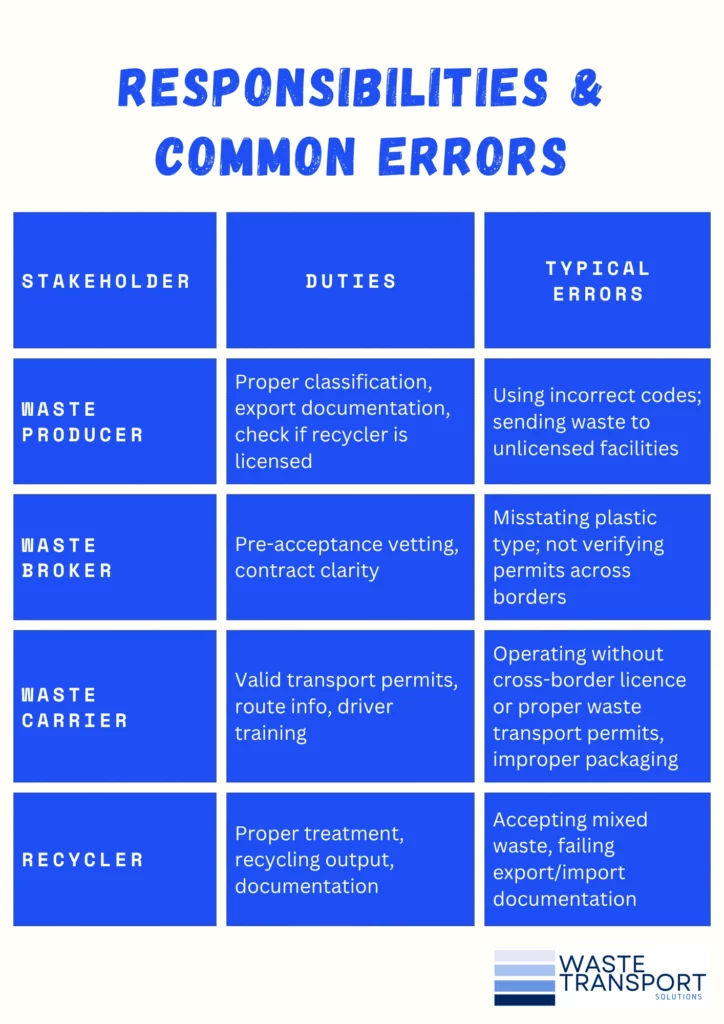
Avoiding these pitfalls requires diligence, education, and transparent partnerships.
Plastic waste recycling – why professional support matters?
Dealing with plastic waste—especially exporting it—introduces complexity at every step. Here’s why engaging a consulting company like Waste Transport Solutions matters:
- End-to-end organization – we manage pickup, documentation, customs, and final delivery.
- Compliance oversight – we check each regulation, and each partner’s license.
- Visibility and traceability – you receive full documentation guaranteeing your waste was processed responsibly.
- Cross-border expertise – we handle EU law, Basel Convention rules, and national requirements seamlessly.
Trusting a decade-experienced advisor reduces risk and improves outcomes—for waste generators and environmental goals alike.
Common pitfalls & how to spot fraudsters
Red flags
Vague contracts
As a waste producer, you are legally responsible for what happens to your waste — even after it leaves your premises. If a company offers you a vague contract filled with generic service descriptions, treat it as a red flag. This is a common practice used by unlicensed brokers or fraudulent operators to bypass regulations. Working with such entities may seem convenient or cheaper at first, but if the waste is mishandled, illegally dumped, or stopped at a border, you will be held accountable — not the middleman. Always verify the contractor’s permits, demand transparency, and never accept vague language in agreements. Cutting corners in documentation means exposing yourself to legal, financial, and reputational damage.
Low cost offers
Prices far below market value often signal hidden costs, illegal disposal, or environmental dumping. But the reverse is also true — if someone offers price that’s “too good to be true”, they likely assume you’re willing to take a risk that will eventually backfire. In waste management, cutting corners always comes at a cost — legal, financial, or reputational.
Lack of documentation
If a contractor refuses to provide essential documents — such as facility permits, transport authorizations, or proof of the final destination — you should immediately question their legitimacy. Being redirected to “partner brokers” or unnamed third parties is another common tactic used to obscure responsibility. As the waste producer, you’re legally accountable for ensuring that your waste is managed lawfully all the way to final treatment. If documentation is missing, incomplete, or evasive, assume you’re being exposed to serious legal and financial risks. No paperwork usually means no compliance — and no protection for you.
Green flags
Detailed contracts
A reliable contractor will provide a clear, itemized agreement specifying the exact type of plastic waste (with proper waste codes) they can handle, the licensed destination facility, and all relevant transport and processing permits. Such transparency signals that the company understands its legal obligations and takes compliance seriously. For you as the waste producer, a detailed contract is not just a formality — it’s your best safeguard against liability, ensuring full traceability and lawful handling of your waste.
Transparent pricing
A trustworthy partner will provide a clear cost breakdown — separating charges for sorting, processing, transport, documentation, and administrative fees. This level of detail demonstrates professionalism and ensures there are no hidden costs. For you as the waste producer, transparent pricing not only helps in budgeting and compliance reporting, but also signals that the contractor isn’t cutting corners or outsourcing risky steps to unverified third parties. If a company can’t explain what you’re paying for — assume you’re paying for trouble.
Full traceability
A compliant and professional contractor ensures that you receive the complete documentation package — including consignment notes, customs declarations, transport permits, and final recycling or recovery certificates. This not only confirms that your waste reached the intended, licensed facility, but also provides essential proof in the event of an audit or inspection. For waste producers, full traceability isn’t optional — it’s a legal shield. If documentation ends with the pickup, you’ve lost control — and potentially, your legal defense.
Plastic waste recycling – what to keep in mind?
Exporting plastic waste for recycling can be profitable and eco-friendly—if it’s done right. By selecting a skilled advisor like Waste Transport Solutions (part of Ekologistyka24 Group), you’ll ensure your waste stays lawful, transparent, and responsibly managed at every step. Contact us to turn your plastic waste into sustainable value—safely and confidently.
Do you want to know more about waste paper, glass waste or metal waste preparation for transport and recycling? Check the following articles:
How to export waste paper for recycling – essential documents for international shipments
Glass recycling: practical steps to prepare waste for export
Metal waste vs. scrap: exporting and recycling across Europe

